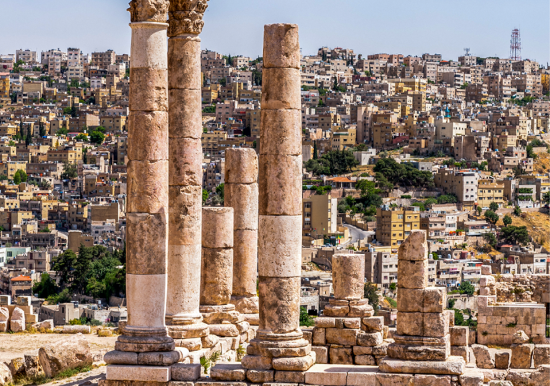
Egypt: New Capital, New Culture of Governance
Egypt ranks 11th in the 2024 CGGI rankings for the Long-Term Vision indicator, which falls under the Leadership & Foresight pillar. In 2016, Egypt’s leadership introduced Vision 2030, a strategic blueprint designed to propel the nation into a new era of economic prosperity. Egypt’s New Administrative Capital, a purpose-built urban community on the outskirts of Cairo, began housing government entities in 2023. The President of the Central Agency for Organization and Administration (CAOA), which oversees the government employees move to the new capital, sheds light on Egypt’s aspirations to build up a civil service that is equipped and motivated to serve the country well.
Vision 2030: The Future of Egypt
While Egypt has been making Five Year Plans since the 1960s, in 2014, the Egyptian government started to develop a longer-term vision. It formed committees, which included non-governmental experts and representatives from different sectors, to develop this plan in a participatory manner. The government participated in and facilitated these meetings, and provided the necessary data and information. The resultant Vision 2030 blueprint, approved by the Cabinet in early 2016, incorporated elements from the UN Sustainable Development Goals as well as the African Union’s Agenda 2063, to form a unique vision for Egypt’s future.
One of the pillars of Vision 2030 emphasises government transparency and institutional governance. There is a focus on the reform of Egypt’s public administrative bodies, and the structure of government as a whole by 2030. Our goal is an efficient, effective public service able to perform its duties and achieve customer and citizen satisfaction. Ongoing reforms that we had already been planning for since 2014, were incorporated into the Vision 2030 blueprint.
From Vision to Action
To reach our vision for an efficient public administration that caters for the future, we decided to work on five components: legislative reform, institutional reform, capacity building and enhancement, digitalisation, and improving public services.
Among the first fruits of Egypt’s Vision 2030 national development strategy was the passing in 2016 of the new Civil Service Law, replacing the previous Public Employees Law. This was one of the most significant reforms of the past ten years. We call ourselves a Civil Service to signal that public service employment is not an end in itself—it is a means to serve the people, and the law is intended to govern the services we provide to citizens. CAOA is non-partisan and politically neutral, dedicated to serve all citizens, collectively. This represents a paradigm shift in the culture of Egyptian society, and it has taken time to introduce this cultural change among both public service employees and the citizens.
Public service employment is not an end in itself—it is a means to serve the people.
In terms of institutional reform, CAOA has worked to restructure Egyptian public institutions, as we set up our New Administrative Capital (NAC). Internal Control and Governance Units have been established in all government Ministries and Agencies, including at the local and municipal levels. This is to ensure that Ministries and Agencies abide by regulations to promote good governance. Specialised IT and digital transformation units have also been established. A unit was set up in all government entities, under the supervision of the Ministry of Planning and Economic Development, to coordinate strategic management plans in the different sectors—including education, industry, finance, health, and so on—with Egypt’s Vision 2030’s Sustainable Development Plan. This ensures that every government entity is accountable for its progress in implementing these national plans.
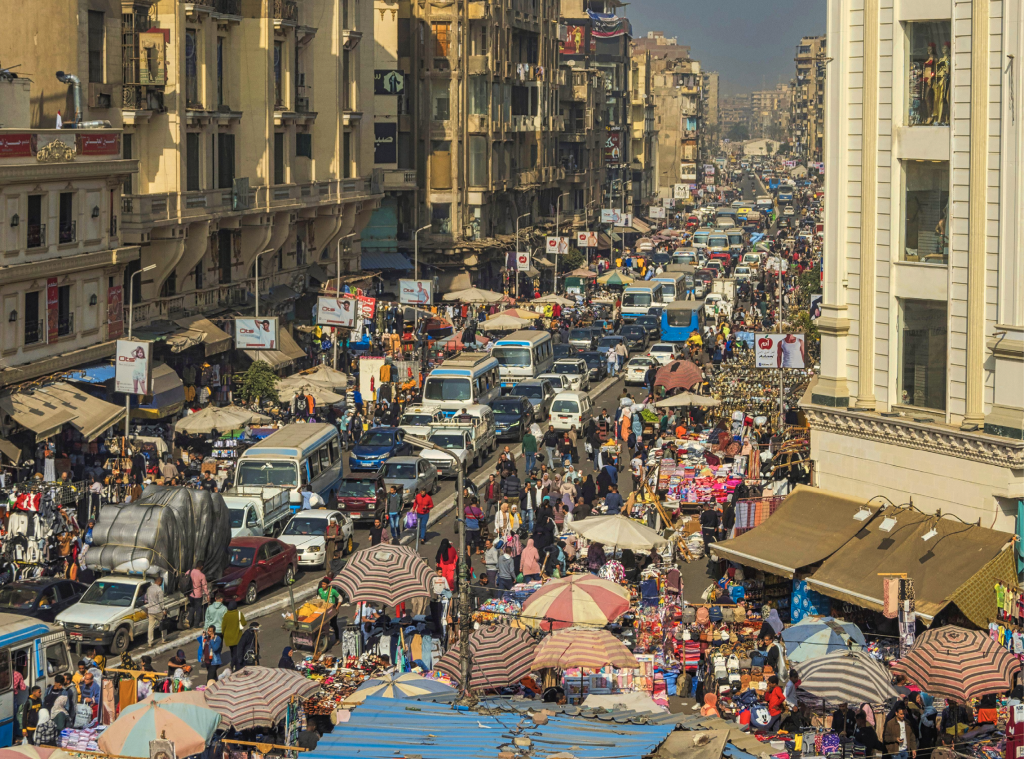
Building Capacity for Change
Capacity building is about strengthening the capabilities of public employees. It includes recruiting the right candidates as new civil servants and building the capabilities of those already in service.
In the past, every agency conducted its own recruitment, which left the door open to the risk of corruption. Today, CAOA has a single portal for all government jobs, and no government agency can post vacant jobs except through this portal. Through the portal, all government vacancies are announced, and candidates apply online without having to submit their documents in person. CAOA has also set up a completely digitalised Capability Assessment and Competition Centre with a centralised, automated examination system that all prospective government employees have to undergo. The results are completely automated, with no human intervention. When we implemented this, there was some resistance to change. Now, we have a centralised assessment and ranking, so public employees are recruited not based on their connections or social standing, but based solely on their assessed merits. This has resulted in an improvement in the quality of newcomers to the civil service, with a positive impact on public sector performance.
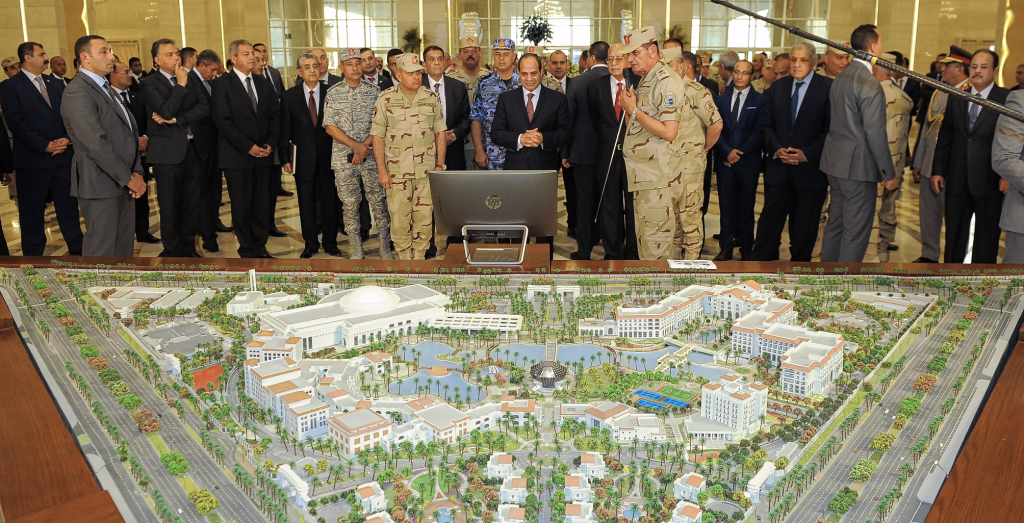
For current employees, we have started a national training strategy, with provisions for every level of employees: from entry level to middle management and leadership. CAOA has a training bundle for senior civil servants, to help them plan for their life after retirement. This is one of the most important training modules we offer, because it sends the message to those who are about to retire that they are supported. Indeed, even after retirement, they can register with an online system that makes their CVs available to the private, public, and non-governmental agencies who are looking for particular expertise. This opens up new opportunities for employment after retirement.
There are also specific training programmes for public employees moving to the New Administrative Capital. We are very selective about which employees move to the new capital. CAOA worked with experts, including psychologists, to develop a panel of traits that Egyptian public employees should have: such as a desire for self-improvement, computer skills, knowledge of Arabic and a second language. Current employees are assessed based on these traits, and related training modules are designed and implemented. Only those who have passed this assessment move to the New Administrative Capital. Employees are given the chance to pursue their own training through CAOA’s Learning Management System, to earn a second chance. Those who do not move to the New Administrative Capital are placed in the municipalities where their skills are needed, or stay in Cairo in other government entities if they have circumstances that mean they cannot move. The process is responsive to the individual needs and capabilities of the employees.
For those moving to the New Administrative Capital, a range of incentives are offered, from subsidised housing to transport allowances. If they opt to live in the New Administrative Capital, which is designed as a smart city, they are only about 15 minutes from their offices, with plenty of amenities nearby and not as much traffic—unlike the old Cairo city centre. Indeed, as CAOA was responsible for overseeing the move, it was among the first government agencies to relocate to the New Administrative Capital, to show how it can be done, and the benefits of doing so.
Nurturing a New Civil Service Culture
With the move to the new capital, there is a change in the way public employees interact with one another. For instance, we used to have difficulty training employees from different public agencies, because they were scattered around Cairo. Once the move took place, we were able to train employees together in groups from different entities. They started not just to train together, but also to understand each other’s place in the national ecosystem. They also began networking with one another. Our training programmes are not just about imparting technical skills, but also developing interpersonal relationships.
CAOA is nurturing a culture of collaboration in different ways. Every public employee uses their first and abbreviated last name for their email address. So if you know someone’s name and agency, you can contact them and communicate. The move has enabled employees from different Ministries to interact much more easily. Different agencies’ employees live in the same areas; they even share the same transport groups. The new offices have spaces that are much more conducive to working together. These various elements have enhanced interpersonal ties among the civil servants.

A Public Service of the Future
All these efforts have to do with building up the capacity of government employees to deliver better public services. Our ideal Egyptian public employees should have strong technical skills and IT skills. It is also important that they have a good understanding of context: what surrounds them, the environment and ecosystem, and have interpersonal and communication skills.
Employees are encouraged to take part in collective decision-making, as this enhances the quality of decisions. Strong management and leadership skills are also needed across the different levels of the civil service. At the institutional level, the aim is to have clarity of domain. This will prevent overlapping of jurisdiction and allow cooperation and coordination to take place.
We want people to take part in collective decision-making, because that is good for the quality of decisions.
Now that we have moved to the New Administrative Capital, the process of building up capacity and nurturing a new, collaborative culture of excellence is taking place. It is not easy to change the culture, but we continue to promote a positive working environment. Our objective remains to reform and enhance the capacity of the civil service at the local and municipal levels across Egypt.
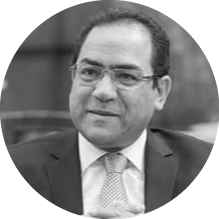
PROF. SALEH ABDEL RAHMAN EL-SHEIKH
President of the Central Agency for Organization and Administration (CAOA), Egypt
Prof. Saleh Abdel Rahman El-Sheikh is President of Egypt’s Central Agency for Organization and Administration—a ministerial-level position—as well as a tenured Professor of Public Administration at Cairo University. He is also Head of the Civil Service Council, Deputy Head of the Executive Council of the Arab Administrative Development Organization, Deputy Head of the Executive Committee of the African Association of Public Administration and Management, a Member of Egypt’s Administrative Reform Committee, New Local Administration Law Drafting Committee, and Civil Service Law Committee. With more than 25 years of professional, academic, teaching and training experience within and outside Egypt, he was previously Vice-Minister of Planning, Monitoring and Administrative Reform, a Member of the Supreme Committee for Administrative Reform, and Director of the Public Administration Research and Consultations Center (PARC) at Cairo University, among many past appointments. He holds a PhD in Public Administration from Western Michigan University.
More Stories

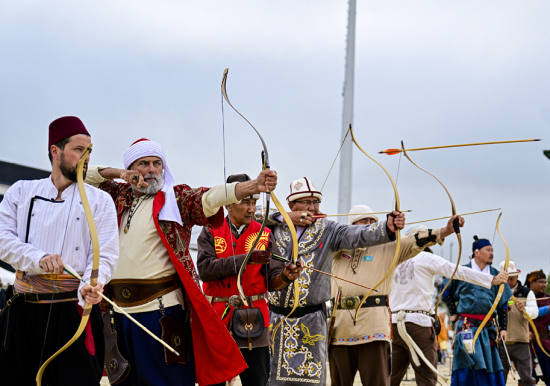
Global Influence & Reputation Country Snapshot: Türkiye

